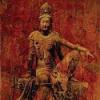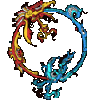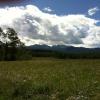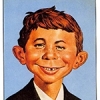Search the Community
Showing results for 'Dream'.
Found 7,591 results
-
My non-ego I, the Self beyond sentience, is fully uninterested in ego,...ego is only a problem for those soley attached to their sentience. To be only aware of sensory consciousness (seeing, hearing, tasting, touching, smelling, thinking), one cannot understand the world that surrounds them,...only the world that surrounded them. Way too much emphesis is put on ego. Just let it go. It's merely a by-product of the dream state. It cannot be killed,...because it doesn't really exist.
-

20 days of experimentation with semen retention
Flolfolil replied to mike 134's topic in General Discussion
altered states are extremely influenced by semen retention for me. If i ejaculate before bed i just wont dream that night at all -
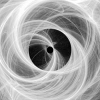
World Peace is near (St. Malachi Prophecy)
eye_of_the_storm replied to Vmarco's topic in General Discussion
What evidence is there to say Buddha / Siddhartha ever reached "enlightenment" Who ever said enlightenment actually exists haha May just be chasing another dream? -
Gnosticism, the original form of Christianity, arose from a Greco-Egyptian philosophical fusion, as mentioned above. Gnosticism was an important part of the neo-Christian construct. Gnosis was not an outgrowth of neo-Christianity, as revisionists suggest. Today’s Christian persuasions are a product of Gnostic Christianity, not the other way around. We could say that Christianity was built on the DNA of Gnosticism. This neo-Christian fabrication from Gnosis and Krst, from gnowledge and the Anointed One, can also be substantiated through the Book of Enoch, from which over a hundred phrases were introduced into the New Testament. Enoch was written before 170 BCE, and several Aramaic copies were purportedly found among the Dead Sea fragments of the Gnostic gospels from Qumran. These Gnostics, from the time of the Julian clan of emperors, maintained that Christ was not a man in human form, as claimed in the gospels, but an individual goal of an initiate to realize a Christ Consciousness, the Logos. The word Christos, referring to an "awakened one," crept into Greek subculture during the fifth century BCE, and this word can be found in the works of classical writers, such as Aeschylus and Herodotus, the father of history. The Logos represents a mystical rebirth without sexual union, an awakening to a reality beyond duality, a palingenesis from the dream of perception. Duality is inherently a sexual reality, in which consciousness is fragmented. Christ Consciousness is an unfragmented consciousness, in which there is neither hope nor fear. The Jesus as defined in the gospels could not have been a Christ. Jesus the Nazarite (not of Nazareth or Galilee) is probably the same Jesus whose sayings were collected by Didymos Judas Thomas in the apocryphal Gospel of Thomas. This Gnostic or cardio-centric gospel of "secret sayings that the living Jesus spoke" appears to have been compiled in response to Paul’s new cerebro-centric religion. Both the Gospel of Thomas and the Epistles of Paul predate the canonical gospels by at least a generation. Christianity isn't a thing one can understand through sound-bites,...a quote here or a quote there,...but as the whole of all information, whose only rational conclusion is that Christianity is 95% fabrication. All the evidence, when considered as a whole, point to Christianity as a refashioning of Gnostic mythology into a religion that advocated slavery, dependency, ignorance, and submissive obedience. This new religion was never a threat to Rome, but rather, it was one through which its adherents, servants of Rome’s ruling class, were morally obligated to suffer meekly what Caesar wished or, as Titus 2:9 says, to please their masters in all things. Christianity is a pro-Roman religion. Did not Paul say that Roman magistrates were only a threat to evildoers or that the man who rebels against his master is opposing God’s will? What Roman would want to persecute the philosophy that said that tax collectors are God’s ministers (Romans 13:6)? It was the Jewish zealots and Gnostic Christians who threatened Rome, not the anti-Gnostic Paulines and neo-Christians.
-
I don't think any credible scholar would say Jesus did not exist,...although all stories of his divinity have been shown to be fiction. Like most fiction, it arises for a reason. For example, the fanciful story of Mason Weems, invented after the death of George Washington, about George Washington and the cherry tree. Weems fabricated this story to broaden the character of America’s first president and to make him seem more appealing. The Jesus Christ myth was interwoven from many sources, including the Egypto-Greek Sarapis, whose devotees, according to Hadrian, called themselves Christians and bishops of Christ. Sarapians had temples in most of the major cities of the time, including Alexandria, Rome, and even Bithynia, where Pliny the Younger was governor at the beginning of the second century CE. Under Trajan (who was married to Pompeia Piso), Hadrian was governor of Syria. As every Bible hobbyist should know, as per Matthew 4:24, Jesus’ fame was said to reach throughout all of Syria, yet the evidence shows that no one there knew Jesus’ followers as Christians until well into the second century. Why was that? Gnosticism, the original form of Christianity, arose from a Greco-Egyptian philosophical fusion, as mentioned above. Gnosticism was an important part of the neo-Christian construct. Gnosis was not an outgrowth of neo-Christianity, as revisionists suggest. Today’s Christian persuasions are a product of Gnostic Christianity, not the other way around. We could say that Christianity was built on the DNA of Gnosticism. This neo-Christian fabrication from Gnosis and Krst, from gnowledge and the Anointed One, can also be substantiated through the Book of Enoch, from which over a hundred phrases were introduced into the New Testament. Enoch was written before 170 BCE, and several Aramaic copies were purportedly found among the Dead Sea fragments of the Gnostic gospels from Qumran. These Gnostics, from the time of the Julian clan of emperors, maintained that Christ was not a man in human form, as claimed in the gospels, but an individual goal of an initiate to realize a Christ Consciousness, the Logos. The Logos represents a mystical rebirth without sexual union, an awakening to a reality beyond duality, a palingenesis from the dream of perception. Duality is inherently a sexual reality, in which consciousness is fragmented. Christ Consciousness is an unfragmented consciousness, in which there is neither hope nor fear. The Jesus as defined in the gospels could not have been a Christ. Neither Paul nor his followers could grasp gnosis, that is, to gnow themselves through the heart of essence. Like many today, frozen in their conceptual experiences, Paul needed a more physical, hope-driven, fear-based path. The ignorant respond to hope and fear. Thus, from the expectations infused through the Pauline church, the concept of a personified Christ grew and entered the groupthink of the anti-Gnostic Paulines and those, like the Roman aristocrats, who wished to exploit it. Before 95 CE, when history suggests that Apollonius died and rose from the dead, there is no mention of a personified Christ or the four gospels. There is no known contemporary scriptural record of the life and times of Jesus/Yeshua. For neo-Christians, so fond of quoting Bible babble, what wasn’t said in the first century that which is curiously missing, is as interesting as the fabrications and contradictions of what was said then. For example, in the writings of Clement Romanus, the Pauline bishop of Rome circa 95 CE, there is not even a tinge of gospel references. Yet Luke 1:1–2 specifically implies that many eyewitness followers had already been writing. Adding to the intrigue, Clement, whom Tertullian and Jerome suggest was the direct successor of Peter, was also said to be a Flavian, that is, a relative of the men who were then the emperors of the Rome. Sciolistic Christians vaunt that the historian Josephus, in two remarks that have been taken out of context, verifies that Jesus/Yeshua existed. Today, however, even conservative scholars agree that those quotations from chapters 18 and 20 of the Jewish Antiquities, a history of the Jews, were later Christian interpolations. Such conclusions are consistent with Origen, an ante-Nicene father, who in the third century CE indicated that such a declaration from Josephus of a Jesus Christ did not exist in his copy of the Jewish Antiquities. Furthermore, no one else before the fourth century CE ever mentioned such an important reference from this often-cited source. Another claim by neo-Christians as to Jesus Christ’s historicity comes fromTacitus’ Annals 15.44, the comment of how Emperor Nero persecuted Christians after Rome’s fire of 64 CE was actually about Gnostic Christians, worshipers of Sarapis, not followers of Jesus or Paul. It was these Christians, the original Christians, whom the author of the second-century Gospel of Matthew called false Christians. Neo-Christians appropriated the name Christianity, as they lifted terms from most of the cultures that they absorbed. In his letter to the Consul Servianus, Hadrian (71–138 CE), who was the governor of Syria under Trajan, called the Sarapian leaders "bishops of Christ." Up until the beginning of the Second Century, the Egypto-Greek Sarapians, including those in Syria, called themselves Christians and bishops of Christ. As you will read, there was no reason for Rome to kill the followers of Paul and the Gospels which arose from Mark. Considering a set of all knowledge for that period, not a single Jewish, Roman, or Greek historian, scribe, or writer mentions before 95 CE the Jesus Christ depicted in the gospels. There are no artifacts, no works of carpentry, and no physical evidence that a Jesus Christ ever existed. For such a famous person, professed to have been known far and wide, it is notable that there is not a single word of him from Pliny the Elder, Seneca, Gaius Petronius, the Syrian Mara, Philo Judaeus, Pausanias (who traveled throughout Syria), Theon of Smyrna, Thallus of Samaria, Silius (Consul of Asia Minor), or the Syrian-born Lucianus. However, the word scribe(s) is mentioned at least sixty-six times in the New Testament. Thus, repeatedly, what was not mentioned says much regarding the history of the invention of present-day Christianity. For instance, why was the capital of Galilee, Sepphoris, known as the ornament of Galilee, just four miles down the hill from the archeological site of Nazareth, not alluded to in the Gospels, although they all mention Nazareth? Could it be that the authors of the gospels were unaware that the city existed because Rome leveled it during the Jewish Revolt of 66–71 CE, some forty years after the Talmud’s Jesus was hanged for sedition? It is unlikely that Nazarites lived in Galilee, but were instead Jerusalemites. V
-
Through my understanding of it, God is represented in Buddhism when you look at the definiton of the Buddha. The Buddha being the man himself, the teachings (dharma), and that which we awake to. That which we awake to is that we are all the the Buddha. To explore the concept a little more one can look at the form of thought that comes up time and time again in the stories of peoples' near death experiences. It is said that the Buddha smiles upon us in our time of death and relieves us of our suffering. Christian beliefs reflect this as it is believed one meets their maker after death. Some Buddhist schools believe that there are thirty two levels of consciousness. The categorization of the layers go as following: the world of five sense, the world of pure form, the formless world (infinite space, infinite consciousness, nothingness, neither consciousness nor unconciousness) and finally the world/realm. To explore the god concept and lack thereof, one must look to the world of pure form. In this layer, one is only able to see, hear, and think. Like in a dream, you are not able to see yourself as if you were simply a central point from which the world is percieved. I don't know whether this is at the uppermost layer of pure form before crossing into the next, but regardless, one sees the "Buddha". The German philosopher Max Weber, says that God is man's need for a father figure. I agree but would respond to Weber that, if one is in need of a motherly figure or a friend, the buddha becomes just that. Your mother, your father, your closest friend, someone you look up to or your relatives; whoever you need comfort from in that space of pure light or whoever you wish to comfort. Many will still be caught up in some wrong doing or another form of unworthiness of self. Through the accute understanding of the bad situations we are put into or born, innocence in ignorance, and forgiveness from the Buddha and the persons "he" becomes, one finds solace in the feeling of being forgiven/worthy. The buddha comforts you by becoming that figure in your life (sight) that you trust to help ground you and build trust. The Buddha comforts you with words through that familiar voice (sound), and basically the Buddha's prescence "who" also uses non-verbal communication/understanding (thought). God, in a way, is a comforting medium between jumping into the scary thought of being all alone at the end of it. So you see, God/Buddha is a reflection of your own self mimicking and reacting to your own thoughts and needs producing the image that you create. There are two ways of practice in Buddhism. Devotionalism (similar to Christianity) where the Buddha is prayed to and the focus of your devotion, and the second where the goal is to become the Buddha. There is a direct correlation between the process of ones suffering lessening as the need for comfort through familiar faces and voices calms into contentment as one learns of the true nature of oneself. Through the help of your own inner ability to come to the truth on your own along with the confirmation of thought by the Buddha before you (the same thing), the visuals and sounds subside and you can move on to a higher/inner level of consciousness through realizing the truth of one's self being that you are the Buddha. This is why Buddhists are fine with saying that there is and isn't a god, and the reason for why there is a diversity of answers to that question depending on who you talk to and where you are at in your own consciousness. Many Buddhist scholars (with an absence of holding them above) would say no, there is no God. I personally agree that this is ultimately true since the Buddha's prescence is in a middle layer of consciousness (world of pure form) both beneath the ultimate destination and above the world of the five senses we are so use to. For the sake of diversity with the help of an understanding of the layer concept, I think that the answer varies throughout the process of the raising of ones consciousness. I hold this belief of both God and no god because I believe what you hold only gets in the way of fulfilling this process of moving on in consciousness to the formless world nearer to nirvana/Tai Chi.
-
I have been doing this for years. email correspondence with various cultivators. First time actually displaying it publicly though. I do like the idea that "The Learner", Michael, has, so in respect to him and his compassion in opening such a forum, here I go ***I wont take on this project for only one month. Once you start with me, I am made available any time. Consider my doors open till I am done with this lifetime. i will generally post the categories of practice, and then who ever feels a connection, just pm me a question (email me: [email protected]) a specific thing you wish to practice, and I will be more than happy to offer anything I can. Just know that somethings have specific requirements, and I will not teach the method if those requirements honestly can not be kept. Unless I am given the ok by the bearers of the method...hahahahahahahahaha Buddhist Educational Cultivation: Sutras, Chan, Pure Land, Mantras, 42 hands and Eyes (But have a requirement, as a safeguard ) Visualizations, Dream Practices, Ghost/Spirit/Demon subduing (this will require lots of specific responsibilities, so if one is really ready for that, be my guest, but don't feel frustrated if the requirements are too much to handle. There is a reason for such things ), Rebirth in Pure Land methods for helping living beings move on, and or transferring merit and virtue to assist them in their lives. Standing, sitting, lying and walking practices (In the exact ideas of QIgong, except not too focused on the progression but the application of mind. Oh, and very much needing the body. ) Daoist Spiritual Practices: Standing, sitting, lying, and walking practices. Meditation, "Energy Work" (just a coined term, nothing new-agey) Qigong practices (just ask what you seek, and I will conjure up the teachings ) "Shen-Gong" (not spirit or ghost, or demonic, or even godly possession) This means that one will be given practices which enable them to go deeper into their mind, utilizing movement and stillness of body and mind practices, focused on learning from wholesome sources, and awakening to their inherent wisdom. These wholesome sources are either Dharma-Protectors, Wholesome and Pure Minded Immortals, Gods, Bodhisattva and or Buddhas (which would be very hardcore high level stuff). You would not be possessed by anything, only guided in mind according to what you can understand, and conceive of that is possible. And NO, you will not be walking on water, flying or burning things with your mind, energy or whatnots...hahahaha (God knows I have been asked that question millions of times. Hey, if you end up learning how to do it, hahaha be my guest.) various practices in both Buddhist and Daoist schools (for I don't see their difference ) : This means practices both in "sealing" a room, or expanse of land, for protection from various ghosts, spirits and demons, clearing a space, recognizing ghost, spirit and demonic influences in and around oneself; or in others. How to clear away such "negative" influences, utilizing the character 佛 for sealing, and clearing. Also in the above categories, methods on healing utlizing Qigong methods for both you and on the sick and dying. Basically a method of Hands on Healing, not Reiki, not the new-agey fluffy stuff either. Just simple practices to get one started in this manner of lifestyle, and practice. I know it seems a lot, but its not. I just feel that going into detail may not only clear up the ideas of what I do, but also help those who are interested, get an idea of what they may be looking for. Who knows what else I have in my bag 'o tricks here. Peace and Blessings! Enjoy! Lin
-
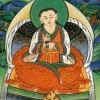
The New Age - what helps, what works, what harms, what doesn't work
RongzomFan replied to Birch's topic in General Discussion
No no no. In these cases, one's own wisdom takes the form of deities, Pure Lands etc., especially in a lucid dream environment where clarity is 7 times higher. -
very interesting stories, thank you everyone for sharing... when i was a child in america, i imagined monks in saffron and yellow robes, looking tibetan, before i knew the difference between different kinds of monks. The images i would conjure of monks while sitting in my room are still very clear in my memory. when i was 14 i wondered what monks did when they meditated, so i sat down and closed my eyes with my legs crossed. I remember sitting there until i was unable to imagine the room or recreate the scene in my minds eye. There i was floating free in space with no reference points. I was hooked! when i was 16 i learned to lucid dream, and read the DDJ for the first time, and a mess of other books like carlos castendeda series and basic buddhism books when i was 18 i was meditating 2 or 3 hours a day, getting up sitting a little going to work coming home sitting a lot eating showering going to bed. It was very unstructured and uninformed, but i was unwinding myself and making progress. I had a spiritual sickness that year and woke from it a fundamentally different person. I consider castendeda to be fraudulent but the experience i had bears remarkable similarity to don juan's description of one who loses their human form to remain just a human mold. Who can say... when i was 19, after studying taiji and kungfu under a daoist for a few years i went travelling, a self styled wandering daoist, living out of a backpack with a bedroll. I saw much of the united states and had a merry time until i was hit by a car at 20. That experience was accompanied by a near death experience which was directly out of the Bardo Thodol (the so called "tibetan book of the dead"... it actually translates as "the inbetween state which liberates upon contact") which i hadn't read yet. when i was 21, having been changed by the NDE, i was having an incredibly hard time healing from a bilateral tibia fibula fracture, and trying to figure out why i could not go back to being the "worldly" (lol) person i was before my NDE. I read the bardo thodol and realized that there was a map for the territory i had stumbled into, and beyond. when i was 22 i took refuge in buddhism under Ontul Rinpoche, a Drikung Kagyu and Yangzab (drikung dzogchen) Tibetan Buddhist lineage holder, and started sitting with a local Drikung Kagyu sangha every chance i got. I started taking my dharma seriously and while the years between then and 30 were characterized by vacillation between heavy involvement in sangha and my own solo exploration sans group, i continued to make progress when i was 30 i doubled down again, met my ninja teacher, and, inspired to become "invisible", started cutting out the inessential things and people that were holding back my spiritual progress. when i was 34 i joined TTB and started posting (i don't usually post much if at all on forums) and learned, among other things, that the NDE had wakened my kundalini... so i started working with that energy with the help of the kuji-in my ninja teacher had showed me, and with shaking practice now at 36 i feel i have a firm foundation in meditation and and building an ever-firmer foundation in philosophy (which i neglected to study for a long time, being turned off by academic approaches to spiritual practice, and preferring to just sit). hope that wasn't too long i left a lot out
-
Has anyone have experiences with mirror gazing? I recently experiment with it. The wikipedia says it's dangerous without guide of a guru. I think the best guru is within. So I tried it anyway. I just stand to look at my own reflexion in the mirror in low light. After a while, my reflexion face become blur. If I continue staring, I hear a buzz sound intensified in my ear. I feel that I should do something. But I don't know what to do. I just continue looking. Then my reflexion disappear from the mirror. After a few seconds, my image come back into the view again. I'd feel totally aware of my own body, alert and calm. It's different than my normal dream like meditation state. I'd love to know more about this. Thanks.
-
I was wondering: Do blind people perceive psychedelic trips just like anybody else? Do people who were born blind, too? Do the latter have visual dreams? Has the amount of visual experience before someone becomes blind an influence on how much they dream visually? I'm curious about all those connections.
-
The Communist dream... after all these years seems to have finally come to full fruition // To completely destroy the beacon of light, innovation, freedom that was the USA many, many years ago... http://www.youtube.com/watch?v=nXg2WsNCrW4 I wish all true patriots the best of luck and deliverance from this wickedness...
-
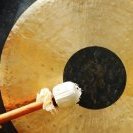
Join me in brewing Apfelwein? Easy award winning apple wine
joeblast replied to thelerner's topic in The Rabbit Hole
I walked through a store in my dream last night and picked up a bottle of apfelwein, and your name was on the label. but I got interrupted and had to leave, so I didnt wind up getting to taste it -

Ho' oponopono -- Improving the World by Loving Yourself
Birch replied to Xienkula1's topic in General Discussion
Check this out too http://www.amazon.com/Internal-Family-Systems-Therapy-Guilford/dp/1572302720/ref=sr_1_1?s=books&ie=UTF8&qid=1360083810&sr=1-1&keywords=internal+family+systems+therapy+by+richard+schwartz Very close to what Seth is referring to. I tried the Seth version last night. After that I had a dream in which (literally) people were arriving in a boat and by car to come see me. I 'knew' it was because I was doing this stuff. So I did another session this morning. But I found I felt exhausted and had to sleep after it. So I wouldn't pick a day on which you don't have time to rest after. -
Even though you described it as rhetorical, I thought I would respond... There are basically two types (levels) of energy based transmissions. They are mind-mind and light-light. An example of mind-mind would be an astral visit or sometimes a vivid dream. A light transmission from a master/guru is beyond the ability of the mind to percieve, and is based in the "heart". Usually, the understanding creeps into the conscious mind over a period of time. At the "physical" level! a transmission is usually from speaking or found in writing. But, a master/guru "transmits" on all levels, no matter what the medium. So for those with the "capacity", they can receive a light transmission from reading a book (or holding an object). Best wishes, Jeff p.s. The paper (human consciousness) is the same for all traditions. The information and level/strength of transmission is not. Also, I have found that the key in any transmission is the "openness" to receive it.
-
Something tells me we're missing a few details leading up to the dream... Was there a natural connection from birth? Maybe you have related this on TTB somewhere(s) else. --- I would only say that I did not come to Taoism but an understanding of Tao from birth. But no immortals have visited me yet. In a nutshell: Literature and poetry was always my love. Here are those writings which have most affected me: Those in bold the most. - Greek: Sappho, Callimachus, Homer, Euripides, Aeschylus, Aristophanes, Sophocles - Romans: Virgil, Horace, Catullus, Ovid, Juvenal, Martialis - English: Blake, Milton, Chaucer, Pope, Shakespeare - Metaphysical poets: Donne, Marvell, Cowley, Crashaw, Herbert - Italian poets: Ariosto, Boccaccio, Dante, Petrarca - Existentialist: Camus, Husserl, Heidegger, Kierkegaard, Sarte, - Chinese poets: Bai Juyi, Du Fu, Li Bai, Li Qingzhao, Li Shang-Yin, Meng Haoren, Qu Yuan, Su Dongpo, Tao Qian, Wang Wei - Zen- Bodhidharma, Huike, Sengcan, Daoxin, Hongren, Farong, Huineng, Shenxiu, Mazu Daoyin, Huangbo, Dogen. I didn't relate how I came to an understanding of Tao... Life; reading; experience. I left out any daoist writings... by the time I read the DDJ, right after my Zen period, it was all too obvious. It was a great 'duh'. I felt nothing was added except organized understanding. But it was like coming home. I would need to list the ancient chinese text separately as to its influence if that detail was wanted.
-
Laozi came to me in a dream-vision and said, in Old Slavonic, "Some things yield to flowery speech and there's no harm in that, but other things, be silent about, for the supreme power gave us comprehension not toward many words but toward many silent omissions." I didn't know who he was and mistook him for the Protopope Avvacum, a 17th century Russian church reformer. What he said in Old Slavonic I later discovered to have been the opening of TTC (he had to resort to an obsolete language which I happen to understand so as to render the exact meaning of the obsolete Chinese usage, because the stylistic peculiarities of the original do not correspond precisely to those of modern Chinese, let alone any other modern language.) Now, whenever I invoke an immortal or a deity, the first thing they sometimes tell me is, "wait... aren't you that silly cow who thought Laozi was a Russian troublemaker, a guy with a horrible temper who denounced everybody and everything, from his church superiors to Siberian shamans?.. What a blunder!.." -- and then they usually laugh their heads off. It's not easy to get an immortal whose memory is infinite to forget a faux pas...
-
Good suggestions. I would recommend not focusing so much on what you do when you get up, but rather what you do and don't do before sleeping. I have found that adding a second meditation session at night before I go to bed helps my sleep, my dream lucidity, and how I feel upon waking up. Even if you can just rest the mind while in a decent meditation posture for a mere 10 minutes I bet it will help. If you can do 30-40 minutes, then all the better but start small and slowly get into it. I would avoid tv, passionate discussions, and news a few hours before sleeping and be mindful of what you expose yourself to on the internet at night. In the morning try some of the "hold a posture for many minutes and breath yoga" such as iyengar, not the modern crank up the heart rate style yoga, then have your meditation session at night right before you go to sleep.
-
but sometimes we wake within a fantastic dream to fly among birds
-
Hi K, I think you may somewhat misunderstand Buddhism (confusing it with Vedanta). Buddhism does not believe in "extinction", but instead the realization of "no-self" which is often confused. The "extinction" point is one of the big distinctions of Buddhism and a Buddha. The concept of "individuality" does not cease and the sutras are very specific about the risk of that happening. Below from the Lankavatara Sutra... “When it is said that all things are egoless, it means that all things are devoid of self-hood. Each thing may have its own individuality-the being of a horse is not of cow nature-it is such as it is of its own nature and is thus discriminated by the ignorant, but, nevertheless, its own nature is of the nature of a dream or vision. That is why the ignorant and the simpleminded, who are in the habit of discriminating appearances, fail to understand the significance of egolessness. It is not until discrimination is gotten rid of that the fact that all things are empty, un-born and without self-nature can be appreciated.”
-
hmmm just sharing some thoughts here. From my perspective maybe you can relate etc. I dont know what is happening to me, Im finding sleep very difficult, and doing spontaneous movements im just pulling sick qi out of my heart wildly, the last few days feel like my ego has died and keep thinking about living a long life etc which is in some ways kind of purifying but at the same time kind of depressing. When you do a lot of practices or whatever and all the shit comes out of your heart, I think thats where it comes from. It probably needs to be transmuted to light otherwises all the opened up can of crap is just floating around your body and depression..I think edit: I guess long life thing is a dream an illusion out of touch with reality
-
That is what the Heart Sutra instructs on,...although having an excellent commentary, like the Heart Attack Sutra, is even more helpful. What cannot realize the void, is that which arises from the skandhas,...the 5 aggregates. The Heart Sutra is explicit on this. Thus you must access another way of seeing. I'm not a teacher, but will be glad to dialogue on the subject as you uncover the process. Everyone puts their boat in the water so-to-say at a different point. For me, I realized early on that I will never understand Who I am, without the awareness of When I am. Doing so alters your complete point of view,...it acts as an absolute bodhicitta lojong or means to truth realization. Some absolute bodhicitta lojongs would be: *Treat everything you perceive as a dream. *Find the consciousness you had before you were born. *You will never understand Who you are, until you realize When you are. *There is no Present in time. *Between meditations, treat everything as an illusion.
-
Let's discuss our way of life, according to our values and our attitudes, to find out how far off the mark we are in relation to the eternal Way (道 i.e.Tao). John Lennon's Way (道) of Living, as told in his song "Imagine" would be as follows: No Heaven, no Hell, and above us only sky. (Meaning no religion, shamanism, spiritualism.) All the people (百姓) living together for today. (No dwelling on the past, no planning for the future.) No countries. (No nationalism, no territorial divisions.) Nothing to live or die for. (No conflicts, no dreams and no wants.) No possessions. (Public or private.) Lennon said that his Way (道 i.e.Tao) will lead to: No need for greed and hunger. All the people, sharing all the world, living life in peace. Is John Lennon's dream practicable and consistent with the teaching of the Tao Te Ching?
-
To me, that is the most important thing,...to simply recognize that our perceived living situation is relative. Such a mindset allows for the uncovering of bodhicitta,...to honestly observe everything perceived as a dream. IMO, only through impeccable honesty can one realize the Tao,...which is synonymous with the Tathagata. Lao Tzu said, "the Tao doesn't come and go." Buddha said, "the Tathagata does not come and go."
-
True, Good fun... hmm I really like that movie too... I believe that people create their own heaven / hell... that these things... predate any religious institutions and that seekers have stumbled upon these realms... and simply did their best to explain From memory (it has been some time) the wife... created her own "hell" not because of any religious beliefs... but her own attachment / emotional trauma (that became cyclic / downward spiral) and maybe her disbelief... landed her in such a place. I don't remember any strong religious overtones... very little if any. The cure to her hell was to forgive herself / and to believe in something greater than herself. hmm... I have read accounts of people crossing over.... Buddhists see Buddha, Christians see Christ and so on... These beliefs / expectations all shape... As I said before... you make/ create / realize your own being/ dreamscape I have wondered if... .(At the upper level of this density, there are no limits to our desires) an Atheist... desiring no "afterlife" etc... does dream of oblivion... until such time their consciousness stirs again... I think Robin Williams was a great selection for that film... + his other films... The playfulness.... suspending disbelief etc In terms of dimensions... I believe they are all within... take this orange slice for example... So the skin of the orange would be the 1,2 dim the fleshy white part would be the 3rd dim and so on... until the center / the zero point. ? edit: this is very basic / sketch more or less... of what feel at present... working model.

